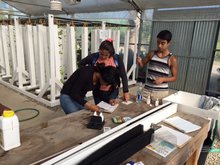0
Report
Community:
Dec 6, 2023
Developed by listening to our community, the Alliance has compiled seven hallmarks that make up a person-first health system.
Authored by: allhealthpolicy.org
Topics: Advocacy, Community development, Health, Healthy homes, Medicaid / Medicare
 Shared by Molli Caite Hughes
Shared by Molli Caite Hughes
Molli Caite Hughes posted a
on Dec 6, 2023
Developed by listening to our community, the Alliance has compiled seven hallmarks that make up a person-first health system.
0
Interactive
Community:
May 1, 2023
Play is not only beneficial but essential for people of all ages. Today, there is increasing interest in the benefits of not only play itself, but specifically people from younger and older generations playing together. The built environment in our communities plays a critical role in facilitating this intergenerational engagement and play. Approaches such as Intergenerational Contact Zones (ICZs) introduce strategies for promoting social inclusion and belonging, employing novel ways of planning and designing public spaces to create intergenerationally enriched environments that provide mutual benefits as well as counteract ageism and age-related stereotypes.
Authored by: Stephanie Firestone and Julia Glassman for AARP Equity by Design- Principles in Action
Topics: Community development, Dual-generation, Exercise, Health, Seniors, Youth
 Shared by Sandra Ware
Shared by Sandra Ware
Sandra Ware posted a
on Jun 8, 2023
Stephanie Firestone and Julia Glassman for AARP Equity by Design- Principles in Action
Play is not only beneficial but essential for people of all ages. Today, there is increasing interest in the benefits of not only play itself, but specifically people from younger and older generations playing together.
0
Communications
Community:
Apr 3, 2023
ASTHO comes to our health agencies and partners saddened by our country's recent mass shooting. We mourn the losses of life from firearm violence as our families, schools, and communities continue to be impacted. ASTHO supports you now more than ever. The epidemic of firearm-related injury and death in the United States has become a critical public health and safety concern that affects everyone.
Authored by: Caitlin Langhorne & Tanya Baker for ASTHO
Topics: Community development, Criminal justice, Health, Mental health, Research
 Shared by Sandra Ware
Shared by Sandra Ware
Sandra Ware posted a
on May 25, 2023
Caitlin Langhorne & Tanya Baker for ASTHO
ASTHO comes to our health agencies and partners saddened by our country's recent mass shooting. We mourn the losses of life from firearm violence as our families, schools, and communities continue to be impacted. ASTHO supports you now more than ever.
0
Case study
Community:
Oct 25, 2022
According to UN-Habitat, the world needs to build 96,000 affordable homes every day to address the
global housing crisis by 2030. Yet, better utilizing existing housing stock—through options such as shared
housing—can make a significant dent in the need to build more housing. With college students often
challenged to find affordable housing and many older adults living alone in homes with spare bedrooms,
these two groups are increasingly benefitting from living together. Universities are often well-suited to
facilitate students living and learning with older adults in nearby communities. Intentionally fostering
intergenerational engagement through places and programs can reduce loneliness, mitigate ageist
stereotypes, and help both groups to thrive.
Authored by: Stephanie Firestone and Julia Glassman for AARP Equity by Design
Topics: Community development, dual-generation initiative, Funding, Health, Homelessness, Housing, Mental health, Seniors, Youth
 Shared by Sandra Ware
Shared by Sandra Ware
Sandra Ware posted a
on Oct 25, 2022
Stephanie Firestone and Julia Glassman for AARP Equity by Design
According to UN-Habitat, the world needs to build 96,000 affordable homes every day to address the
global housing crisis by 2030. Yet, better utilizing existing housing stock—through options such as shared
housing—can make a significant dent in the need to build more housing.
0
Video
Community:
Jun 17, 2022
The Administration for Community Living’s Aging and Disability Network is a multifaceted service infrastructure for older adults and people with disabilities so they can find housing and obtain services like chore assistance, delivered meals, and transportation. By partnering with this community infrastructure, PHAs can improve voucher utilization and leverage and align resources so older adults, people with disabilities, and people experiencing homelessness —all priority populations for federal housing assistance—can obtain supportive services needed to attain housing stability, optimize well-being, and avoid homelessness and costly institutional care. Join this session to learn about PHA partnerships with this infrastructure, discuss the dynamics of cross-sector partnerships in community-driven approaches, and discover opportunities available through the Housing and
Services Resource Center.
Authored by:
Topics: Advocacy, Community development, Disabilities, Health, Housing, Partnerships, Research, Seniors, Supportive housing, Sustainability
 Shared by Karina George
Shared by Karina George
Karina George posted a
on Jun 17, 2022
The Administration for Community Living’s Aging and Disability Network is a multifaceted service infrastructure for older adults and people with disabilities so they can find housing and obtain services like chore assistance, delivered meals, and transportation.
0
Video
Community:
May 18, 2021
Roundtable: Cross-Sector Efforts on COVID-19.
More than a year into a global pandemic, we continue to see disparities in infections, access to care, and economic supports, with an unequal burden on low-income and communities of color. This roundtable will discuss perspectives from housing, health, and policy for what we have seen and what may be to come, as well as ideas we may enact to create more permanent solutions, in addition to addressing current crises.
Authored by: CLPHA
Topics: CLPHA, Community development, COVID-19, Education, Health, Housing, Partnerships
 Shared by Housing Is
Shared by Housing Is
Housing Is posted a
on May 18, 2021
Roundtable: Cross-Sector Efforts on COVID-19.
More than a year into a global pandemic, we continue to see disparities in infections, access to care, and economic supports, with an unequal burden on low-income and communities of color.
0
Report
Community:
Jun 6, 2019
Trends in Housing Assistance and Who it Serves
Authored by: PAHRC
Topics: Community development, Disabilities, Education, Funding, Health, Homelessness, Housing, Legislation & Policy, Low-income, Partnerships, Research, Seniors, Workforce development, Youth
 Shared by Keely Stater
Shared by Keely Stater
Keely Stater posted a
on Sep 10, 2019
Trends in Housing Assistance and Who it Serves
0
Report
Community:
This environmental scan, conducted by AcademyHealth with support from the Kresge Foundation, provides an overview of the technology behind emerging multi-sector initiatives to address social determinants of health.
Authored by: AcademyHealth
Topics: Community development, Data sharing, Health, Partnerships, Research
 Shared by Housing Is
Shared by Housing Is
Housing Is posted a
on May 2, 2019
This environmental scan, conducted by AcademyHealth with support from the Kresge Foundation, provides an overview of the technology behind emerging multi-sector initiatives to address social determinants of health.
0
Video
Community:
Authored by: CA Accountable Community for Health
Topics: Community development, Health
 Shared by Housing Is
Shared by Housing Is
Housing Is posted a
on May 2, 2019
CA Accountable Community for Health
0
Publication
Community:
Apr 25, 2019
Adequate, safe, and affordable housing is one of our most basic needs. But in the US, access to housing is not guaranteed. Demand for affordable housing is growing, especially as housing costs increase beyond wage growth in many communities. Hospitals and health systems are stepping in to help fill this gap. Because of their mission orientation, the importance of stable housing on health outcomes, and policy changes initiated by the Affordable Care Act, hospitals and health systems are increasingly investing in and supporting the creation of affordable housing in their communities.
Authored by: Martha Fedorowicz and Kathryn Reynolds for How Housing Matters, The Urban Institute
Topics: Affordable Care Act, Community development, Health, Housing, Low-income
 Shared by Housing Is
Shared by Housing Is
Housing Is posted a
on Apr 25, 2019
Martha Fedorowicz and Kathryn Reynolds for How Housing Matters, The Urban Institute
Adequate, safe, and affordable housing is one of our most basic needs. But in the US, access to housing is not guaranteed. Demand for affordable housing is growing, especially as housing costs increase beyond wage growth in many communities.
0
News Article
Community:
Apr 16, 2019
ProMedica and LISC team up to fund place-based investments in the hope of improving residents’ health. How do they do it?
Authored by: Amanda Abrams for Shelter Force
Topics: Community development, Health, Housing, Place-based
 Shared by Housing Is
Shared by Housing Is
Housing Is posted a
on Apr 23, 2019
Amanda Abrams for Shelter Force
ProMedica and LISC team up to fund place-based investments in the hope of improving residents’ health. How do they do it?
0
Report
Community:
Apr 8, 2019
While the program has changed very little since its inception, the need for the program has increased. In 1975, the number of program grantees stood at 594. Today, the number of grantees stands at 1,268 as more communities qualify to receive direct program allocations. Based on a CDBG Needs Survey conducted by the CDBG Coalition (and discussed later in this report), CDBG grantees have delayed and canceled projects and reduced or permanently eliminated programs because of a lack of CDBG funds. CDBG is an important investment tool for communities and neighborhoods, but program funding must increase to meet local need to ensure CDBG grantee communities are healthy, vibrant and thriving.
Authored by:
Topics: Community development, Funding, Health, Homelessness, Housing, Legislation & Policy, Low-income, Partnerships, Research, Safety, Seniors
 Shared by Housing Is
Shared by Housing Is
Housing Is posted a
on Apr 8, 2019
A report of the CDBG Coalition
While the program has changed very little since its inception, the need for the program has increased. In 1975, the number of program grantees stood at 594. Today, the number of grantees stands at 1,268 as more communities qualify to receive direct program allocations.
0
Publication
Community:
Mar 26, 2019
As Wilmington’s Riverside community embarks on an extraordinary revitalization effort, Christiana Care Health System is making an impact on health with a $1 million gift to REACH Riverside Development Corporation that will support community health and youth development programs.
Authored by: Christiana Care News
Topics: Community development, Health, Housing, Low-income, Youth
 Shared by Housing Is
Shared by Housing Is
Housing Is posted a
on Apr 4, 2019
As Wilmington’s Riverside community embarks on an extraordinary revitalization effort, Christiana Care Health System is making an impact on health with a $1 million gift to REACH Riverside Development Corporation that will support community health and youth development programs.
0
Interactive
Community:
After working with 37 communities across the country over the last three years to drive sustainable improvements in community health we’ve we’ve seen how when specific approaches are implemented, namely Bold, Upstream, Integrated, Local, and Data-Driven approaches, meaningful change affecting the health of a community can happen. We’ve done our best to document the processes, the successes, and the failures along the way, and from those real-world experiences we’ve created a set of preliminary tools that can inform and guide those interested in learning about the unique BUILD approach.
Authored by: All In: Data for Community Health
Topics: Community development, Data sharing, Health, Partnerships
 Shared by Housing Is
Shared by Housing Is
Housing Is posted a
on Mar 19, 2019
All In: Data for Community Health
After working with 37 communities across the country over the last three years to drive sustainable improvements in community health we’ve we’ve seen how when specific approaches are implemented, namely Bold, Upstream, Integrated, Local, and Data-Driven approaches, meaningful change affecting the he
0
Podcast
Community:
Asset-based community development (ABCD) is a large and growing movement that considers local assets as the primary building blocks of community development, social capital, and health and well-being. Ron Dwyer-Voss, MA, the Owner of Pacific Community Solutions, who also happens to be a long-time friend of podcast host Peter Eckart, joined the show to discuss how ABCD draws on existing strengths of local residents, associations, and institutions to build stronger, healthier, and more sustainable communities. He shared strategies, tools, and examples of how ABCD can be used to engage community residents and support them in understanding and applying their power to improve their neighborhoods.
Authored by: All In: Data for Community Health
Topics: Asset building, Community development, Health, Partnerships
 Shared by Housing Is
Shared by Housing Is
Housing Is posted a
on Mar 19, 2019
All In: Data for Community Health
Asset-based community development (ABCD) is a large and growing movement that considers local assets as the primary building blocks of community development, social capital, and health and well-being.
0
News Article
Community:
Mar 12, 2019
Kaiser is investing $200 million in low-interest loans for affordable housing nationwide. This may be part of a growing national trend of health maintenance organizations investing in housing to improve community health. In Phoenix, United Healthcare lent money to a community development corporation, Chicanos Por La Causa, to purchase apartment complexes for Medicaid recipients. In Chicago, the University of Illinois Hospital helps to find permanent housing for homeless people who regularly present at its emergency department.
Authored by: Raquel Maria Dillon for Market Place
Topics: Affordable Care Act, Community development, Health, Homelessness, Housing, Low-income, Partnerships, West Coast
 Shared by Mica O'Brien
Shared by Mica O'Brien
Mica O'Brien posted a
on Mar 14, 2019
Raquel Maria Dillon for Market Place
Kaiser is investing $200 million in low-interest loans for affordable housing nationwide. This may be part of a growing national trend of health maintenance organizations investing in housing to improve community health.
0
Case study
Community:
Mar 13, 2019
Vacant properties, substandard housing, and neighborhood quality profoundly affect our health, education, and safety. Strategic code enforcement programs can serve as communities’ first line of defense for addressing deteriorating homes, vacant properties, and neighborhood decline. Strategic code enforcement programs organize critical assets, resources, and actions into a dynamic and adaptive system.
Authored by: Joe Schilling for How Housing Matters (Urban Institute)
Topics: Community development, Data sharing, Funding, Health, Legislation & Policy, Partnerships
 Shared by Housing Is
Shared by Housing Is
Housing Is posted a
on Mar 14, 2019
Joe Schilling for How Housing Matters (Urban Institute)
Vacant properties, substandard housing, and neighborhood quality profoundly affect our health, education, and safety. Strategic code enforcement programs can serve as communities’ first line of defense for addressing deteriorating homes, vacant properties, and neighborhood decline.
0
Research
Community:
Jul 21, 2018
A new study measured the mental health of Philadelphia residents before and after blighted lots had been converted into green spaces.
Authored by: Melissa Breyer for treehugger
Topics: Community development, Health, Mental health, Place-based, Research
 Shared by Housing Is
Shared by Housing Is
Housing Is posted a
on Mar 11, 2019
Melissa Breyer for treehugger
A new study measured the mental health of Philadelphia residents before and after blighted lots had been converted into green spaces.
0
News Article
Community:
Jan 24, 2019
A new collaboration of San Francisco Bay Area foundations and businesses is raising $540 million to tackle the region’s affordable housing crisis.
Authored by: Affordable Housing Finance
Topics: Community development, Health, Housing, Low-income, Partnerships, Supportive housing, West Coast
 Shared by Housing Is
Shared by Housing Is
Housing Is posted a
on Jan 28, 2019
Affordable Housing Finance
A new collaboration of San Francisco Bay Area foundations and businesses is raising $540 million to tackle the region’s affordable housing crisis.
0
News Article
Community:
Jan 11, 2019
When plans to develop affordable housing units in San Bernadino hit a funding roadblock, Dignity Health committed a $1.2 million bridge loan to help fill the gap. But the health system didn't stop there.
Authored by: Alyia Gaskins for Shelter Force
Topics: Community development, Funding, Health, Housing, Low-income, Partnerships
 Shared by Mica O'Brien
Shared by Mica O'Brien
Mica O'Brien posted a
on Jan 23, 2019
Alyia Gaskins for Shelter Force
When plans to develop affordable housing units in San Bernadino hit a funding roadblock, Dignity Health committed a $1.2 million bridge loan to help fill the gap. But the health system didn't stop there.
0
Interactive
Community:
The 2018 Purpose Built Conference in Orlando, Florida from October 24 – 26 was a tremendous opportunity for thoughtful engagement and energetic conversations with Network Members and attendees from all across the country. Our panel of guest speakers represented a wide range of industries and brought unique perspectives and insights.
Authored by: Purpose Built Communities
Topics: Community development, Education, Health, Housing, Low-income, Mobility, Partnerships, Place-based
 Shared by Mica O'Brien
Shared by Mica O'Brien
Mica O'Brien posted a
on Dec 5, 2018
Purpose Built Communities
The 2018 Purpose Built Conference in Orlando, Florida from October 24 – 26 was a tremendous opportunity for thoughtful engagement and energetic conversations with Network Members and attendees from all across the country.
0
News Article
Community:
Nov 2, 2018
Public health officials have known for decades that where you live greatly influences how long you can live. Residents who live in neighborhoods free of violence with good housing and schools and with close access to quality medical care, food and parks live longer than those who don’t. Now a recently released report — called the United States Small-Area Life Expectancy Estimates Project, or USALEEP — shows in obvious, color-coded terms the range and proximity of that disparity.
Authored by: Christian Hill for The Register-Guard
Topics: Community development, Health, Low-income, Pacific Northwest, Place-based, Research
 Shared by Mica O'Brien
Shared by Mica O'Brien
Mica O'Brien posted a
on Nov 8, 2018
Christian Hill for The Register-Guard
Public health officials have known for decades that where you live greatly influences how long you can live. Residents who live in neighborhoods free of violence with good housing and schools and with close access to quality medical care, food and parks live longer than those who don’t.
0
News Article
Community:
Sep 24, 2018
The Housing Authority of the County of Los Angeles (Calif.) developed an innovative community garden to provide access to affordable and fresh food as well as skills training and job opportunities.
Authored by: Ashanti Wright for Journal of Housing & Community Development
Topics: Community development, Food insecurity, Green, Health, Housing, Low-income, Nutrition, Place-based, Sustainability, Youth
 Shared by Mica O'Brien
Shared by Mica O'Brien
Mica O'Brien posted a
on Oct 30, 2018
Ashanti Wright for Journal of Housing & Community Development
The Housing Authority of the County of Los Angeles (Calif.) developed an innovative community garden to provide access to affordable and fresh food as well as skills training and job opportunities.
0
Report
Community:
Oct 24, 2018
CLPHA’s Housing Is Initiative is engaged in a number of cross-sector activities focused on developing partnerships, facilitating a community of practice, resource development, promoting best practices, online collaboration, policy and advocacy, and training and education. Read about recent activities in this Fall Update.
Authored by:
Topics: Child welfare, CLPHA, Community development, Cost effectiveness, Data sharing, Early childhood, Education, Family engagement, Funding, Health, Homelessness, Housing, Low-income, Medicaid / Medicare, Mental health, Partnerships, Place-based, Post-secondary, Research, Stability, Substance abuse, Workforce development, Youth
 Shared by Mica O'Brien
Shared by Mica O'Brien
Mica O'Brien posted a
on Oct 24, 2018
CLPHA’s Housing Is Initiative is engaged in a number of cross-sector activities focused on developing partnerships, facilitating a community of practice, resource development, promoting best practices, online collaboration, policy and advocacy, and training and education.
0
News Article
Community:
Oct 9, 2018
Sweet Water Foundation transformed four blocks in Englewood to cultivate community and help build skills, resources, and opportunities for residents.
Authored by: MacArthur Foundation
Topics: Community development, Family engagement, Food insecurity, Green, Health, Low-income, Midwest, Nutrition, Partnerships, Place-based, Sustainability, Youth
 Shared by Mica O'Brien
Shared by Mica O'Brien
Mica O'Brien posted a
on Oct 24, 2018
Sweet Water Foundation transformed four blocks in Englewood to cultivate community and help build skills, resources, and opportunities for residents.
 Shared by Molli Caite Hughes
on Dec 6, 2023
Shared by Molli Caite Hughes
on Dec 6, 2023
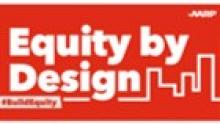
 Shared by Sandra Ware
on Jun 8, 2023
Shared by Sandra Ware
on Jun 8, 2023


 Shared by Sandra Ware
on May 25, 2023
Shared by Sandra Ware
on May 25, 2023

 Shared by Sandra Ware
on Oct 25, 2022
Shared by Sandra Ware
on Oct 25, 2022
 Shared by Karina George
on Jun 17, 2022
Shared by Karina George
on Jun 17, 2022
 Shared by Housing Is
on May 18, 2021
Shared by Housing Is
on May 18, 2021

 Shared by Keely Stater
on Sep 10, 2019
Shared by Keely Stater
on Sep 10, 2019

 Shared by Housing Is
on May 2, 2019
Shared by Housing Is
on May 2, 2019
 Shared by Housing Is
on Apr 25, 2019
Shared by Housing Is
on Apr 25, 2019
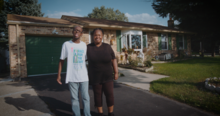
 Shared by Housing Is
on Apr 23, 2019
Shared by Housing Is
on Apr 23, 2019
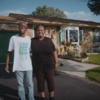
 Shared by Housing Is
on Apr 8, 2019
Shared by Housing Is
on Apr 8, 2019

 Shared by Housing Is
on Apr 4, 2019
Shared by Housing Is
on Apr 4, 2019

 Shared by Housing Is
on Mar 19, 2019
Shared by Housing Is
on Mar 19, 2019
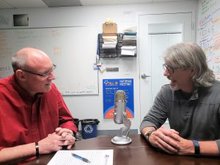
 Shared by Housing Is
on Mar 19, 2019
Shared by Housing Is
on Mar 19, 2019

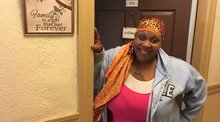

 Shared by Housing Is
on Mar 14, 2019
Shared by Housing Is
on Mar 14, 2019
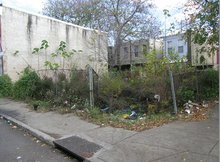
 Shared by Housing Is
on Mar 11, 2019
Shared by Housing Is
on Mar 11, 2019
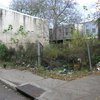
 Shared by Housing Is
on Jan 28, 2019
Shared by Housing Is
on Jan 28, 2019


